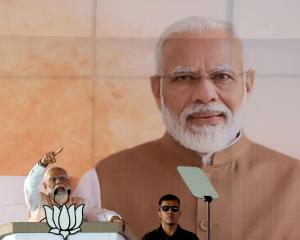In the 1987 movie Wall Street, directed by Oliver Stone, Michael Douglas, playing a particularly disinhibited corporate raider called Gordon Gekko, trumpets the memorable epithet, "Greed is good". Yuppies the world over cheered in the aisles.
And then came the crash and the subsequent realignments in world financial markets. Cupidity was banished to the back-seat.
But a decade or two later the lessons, if they had ever been learnt, were quietly forgotten and greed made a glorious, corpulent comeback.
For the more simple-minded among us, it always seemed counter-intuitive to the point of stupidity that debt, particularly bad debt, could be endlessly repackaged and sold along a chain of financial institutions with everyone making a buck - or a trillion - along the way.
How was that supposed to work? What were those fiendishly clever bankers thinking as they devised ever more sophisticated but opaque ways of repackaging bad loans then passed them on like a hot potatoes, clipping the ticket as they went?
Where was all that bad debt supposed to end up? Did they imagine that as long as the music didn't stop while they were holding the baby it would be fine?
Did any of them ever stop to think - even as the news of human misery on the back of the subprime mortgage defaults began to hit home - that there might be something just a little shaky about the pastime?
Or were they all just a little too caught up in the thrill of making gazillions and counting their obscene multimillion-dollar bonuses all the way down to the marina?
Well, the music has stopped.
Misery has been visited upon tens of thousands, if not millions of people who have lost their life-savings in devalued shares, or their homes and livelihoods as badly affected economies tighten.
How galling it must be for these titans of supercapitalism, these champions of deregulated financial markets, these no-holds-barred prophets of free-market economics, to have to eat the humble pie of a state-funded rescue package.
The package that has been put together by the Bush Administration to buy all the "toxic loans" in the United States banking and mortgage system may end up costing the American taxpayer close to a trillion dollars.
This is in addition to the billions of dollars that have already found their way from the pockets of the average middle-class American - via the lopsided taxation system and deregulated markets - into the wallets of the new breed of supercapitalists who have seen their fortunes multiply to unprecedented levels in the rampant, turbo-charged financial environments of the 2000s.
Further, it is the latter, rather than the former, these measures will benefit the most, by saving their banks and brokerages and insurance agencies, while the hoi polloi flounder about like so much flotsam on the outgoing tide of liquidity.
But now that greed, 21st-century style, has brought global capitalism to the brink of collapse, perhaps all those people who have chanted their mantras on the primacy of the unencumbered market, the evils of regulation, the dead hand of the state, et cetera, will stand on the abyss and peer over the edge.
To paraphrase the poet Shelley, Look on thy works ye mighty and despair.
Not many people, this columnist included, begrudge the entrepreneur, the risk-taker, the careful and wise investor, the hard-driven businessman the fruits of their wisdom and their labour - in short their fortunes, should they accumulate them legally and fairly.
But what the near-collapse of the world financial markets tells us is that common sense, and the old social contracts that used to govern the exchange of capital and labour, and the moral and social universe in which these were traditionally negotiated, has more than a passing validity.
The bankers and financial wizards of this new century have operated in a social and moral vacuum, and, aided and abetted by a lack of appropriate regulation, have created a vortex of non-existent assets and negative equity into which the reserves of real people, created out of endeavour and hard work, have been sucked.
Greed is not good. People make the world go round, not markets.
The working world is not made up of units of labour, or increments of productivity, but of an endlessly complex and fascinating web of interrelationships that comprise an entity called society.
And, in the real world - a world governed by interactions between people - you can only create the illusion of wealth for so long.
Simon Cunliffe is assistant editor at the Otago Daily Times.












